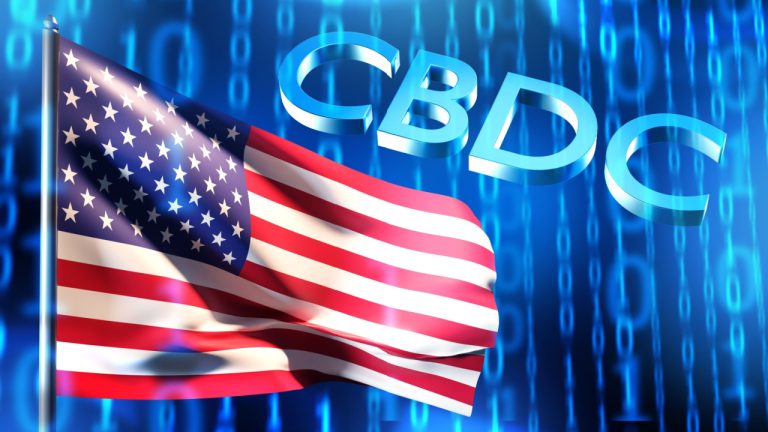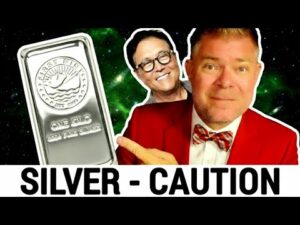
The U.S. Federal Reserve is falling behind its peers, such as the Bank of China, in terms of resources and manpower dedicated to developing a central bank digital currency (CBDC). According to a blog post, this belief that the dollar does not need to innovate is a miscalculation. An expert argues that comparing the U.S. Federal Reserve to central banks in centralized countries does not make sense.
The Opposition to a CBDC
The Atlantic Council, a non-partisan American think tank, reveals in a recent blog post that the U.S. Federal Reserve is lagging behind many of its peers in the development of a CBDC. The post emphasizes the Federal Reserve's lack of resources, including personnel, dedicated to CBDC development and innovation.
The authors of the blog post, Josh Lipsky and Ananya Kumar, provide context by pointing out that the Bank of China has over 300 individuals solely focused on the country's CBDC. In contrast, the Federal Reserve has a team of only twenty individuals working on a digital alternative to the dollar.
Moreover, the Federal Reserve's Fednow, an interbank settlement system, has taken longer to launch compared to similar systems in Europe. Additionally, the adoption of Fednow has been limited in its early stages. While multiple factors contribute to the Federal Reserve's lag, the opposition to the CBDC by officials and politicians stems from a general belief that the dollar does not require innovation.
"Typically, their [Federal Reserve officials'] responses include not perceiving a strong use case at present and concern about the unknown consequences of altering the current system," write the authors. "It is understandable not to want to disrupt the currency that underpins the global economy. However, some individuals within the Federal Reserve and on Capitol Hill mistakenly believe that the dollar does not need to evolve."
The CBDC and U.S. Elections
In addition to Federal Reserve officials and Capitol Hill politicians, former U.S. President and potential presidential election candidate, Donald Trump, has expressed his opposition to a CBDC. As previously reported by Bitcoin.com News, Trump has pledged to prevent its creation if he is reelected.
However, despite the strong opposition to the CBDC, the Atlantic Council blog post argues that payment innovation does not have to wait until after the November election because "a year is an eternity in technology."
Meanwhile, Franklin Knoll, an expert/Lead at the Federal Reserve Bank of Kansas City, questions the Atlantic Council blog post's comparison of the U.S. Federal Reserve with central banks in centralized countries like Japan or the U.K.
"Central banks in these countries have more independence and agility, enabling them to move faster than public sentiment or even their government's views on monetary matters. Remember, the Fed is a largely decentralized collection of public/private banks spread across a continent," asserts Noll.
Regarding the perceived opposition to the CBDC by U.S. politicians, Noll suggests that the blog post overlooks the resistance of U.S. community banks to the digital currency.
Do you believe that the U.S. does not need a CBDC? Share your thoughts in the comments section below.
Frequently Asked Questions
How much tax is gold subject to in an IRA
The fair market price of gold when it is sold determines the tax due on its sale. Gold is not subject to tax when it's purchased. It is not income. If you sell it later you will have a taxable profit if the price goes down.
As collateral for loans, gold is possible. Lenders seek to get the best return when you borrow against your assets. For gold, this means selling it. However, there is no guarantee that the lender would do this. They may hold on to it. They might decide to sell it. You lose potential profits in either case.
If you plan on using your gold as collateral, then you shouldn't lend against it. It's better to keep it alone.
Who holds the gold in a gold IRA?
An individual who has gold is considered to be a “form of money” by the IRS and subject to taxation.
You must have at least $10,000 in gold and keep it for at most five years to qualify for this tax-free status.
The purchase of gold can protect you from inflation and price volatility. But it's not smart to hold it if your only intention is to use it.
If you plan to eventually sell the gold, you'll need a report on its value. This could impact the amount of capital gains taxes your owe if you cash in your investments.
Consult a financial advisor or accountant to determine your options.
Is gold a good investment IRA?
For anyone who wants to save some money, gold can be a good investment. It can be used to diversify your portfolio. But gold is not all that it seems.
It has been used as a currency throughout history and is still a popular method of payment. It is often called “the most ancient currency in the universe.”
But gold, unlike paper currency, which is created by governments, is mined out from the ground. That makes it very valuable because it's rare and hard to create.
The supply-demand relationship determines the gold price. People tend to spend more when the economy is healthy, which means that fewer people are able to mine gold. The result is that gold's value increases.
On the flipside, people may save cash rather than spend it when the economy slows. This means that more gold is produced, which reduces its value.
It is this reason that gold investing makes sense for businesses and individuals. You'll reap the benefits of investing in gold when the economy grows.
You'll also earn interest on your investments, which helps you grow your wealth. Plus, you won't lose money if the value of gold drops.
Statistics
- If you take distributions before hitting 59.5, you'll owe a 10% penalty on the amount withdrawn. (lendedu.com)
- Gold is considered a collectible, and profits from a sale are taxed at a maximum rate of 28 percent. (aarp.org)
- If you accidentally make an improper transaction, the IRS will disallow it and count it as a withdrawal, so you would owe income tax on the item's value and, if you are younger than 59 ½, an additional 10% early withdrawal penalty. (forbes.com)
- Contribution limits$6,000 (49 and under) $7,000 (50 and up)$6,000 (49 and under) $7,000 (50 and up)$58,000 or 25% of your annual compensation (whichever is smaller) (lendedu.com)
- This is a 15% margin that has shown no stable direction of growth but fluctuates seemingly at random. (smartasset.com)
External Links
law.cornell.edu
- 7 U.S. Code SS7 – Designation board of trade as contract marketplaces
- 26 U.S. Code SS 408 – Individual retirement accounts
wsj.com
- Saddam Hussein's Invasion Helped Uncage a Bear In 1990 – WSJ
- How do you keep your IRA Gold at Home? It's Not Exactly Lawful – WSJ
forbes.com
- Gold IRA – Add Sparkle to Your Retirement Nest Egg
- Understanding China's Evergrande Crisis – Forbes Advisor
cftc.gov
- Fraud Advisory: Precious Metals Fraud
—————————————————————————————————————————————————————————————-
Based on [POSTTITLE]
by [POSTAUTHOR]
Related posts:
 Standard Chartered Bank: Offering Digital Yuan Exchange Services in China
Standard Chartered Bank: Offering Digital Yuan Exchange Services in China
 The Top 5 Most Read Bitcoin.com News Stories in 2023
The Top 5 Most Read Bitcoin.com News Stories in 2023
 Robert Kiyosaki: Fiat Money Isn’t Safe, Investors Must Protect Themselves From Central Bankers
Robert Kiyosaki: Fiat Money Isn’t Safe, Investors Must Protect Themselves From Central Bankers
 The Future of the U.S. Dollar Amidst Rising National Debt: Analysis by Jeffrey Gundlach
The Future of the U.S. Dollar Amidst Rising National Debt: Analysis by Jeffrey Gundlach










